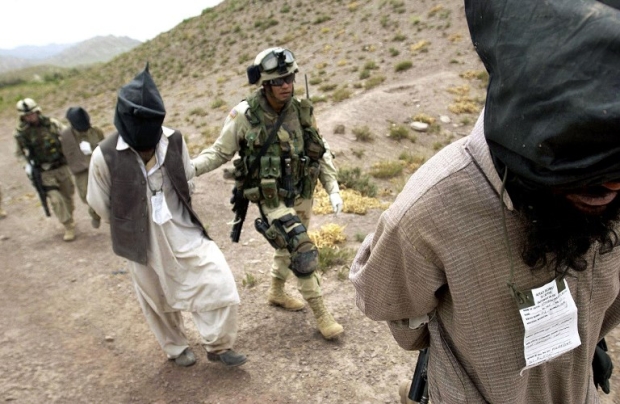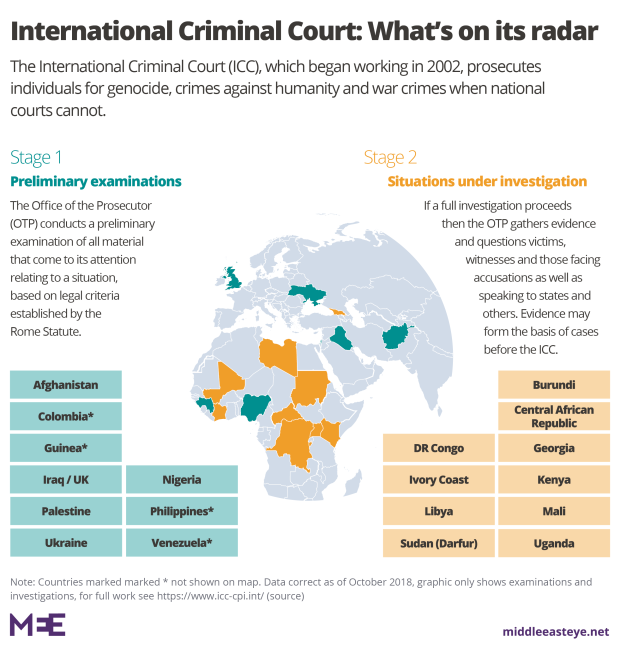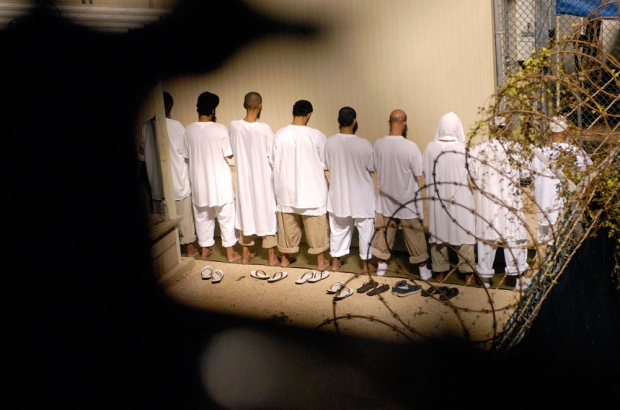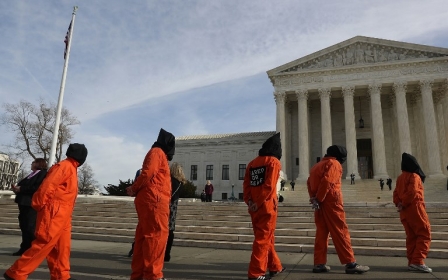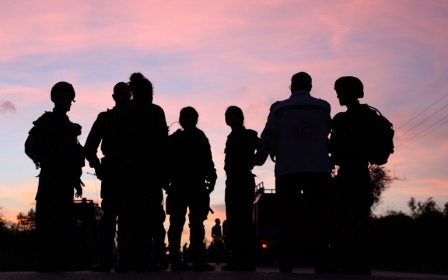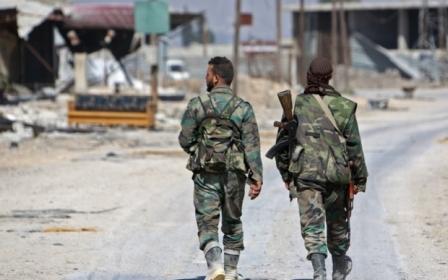ICC on collision course with US over looming Afghan war crimes probe
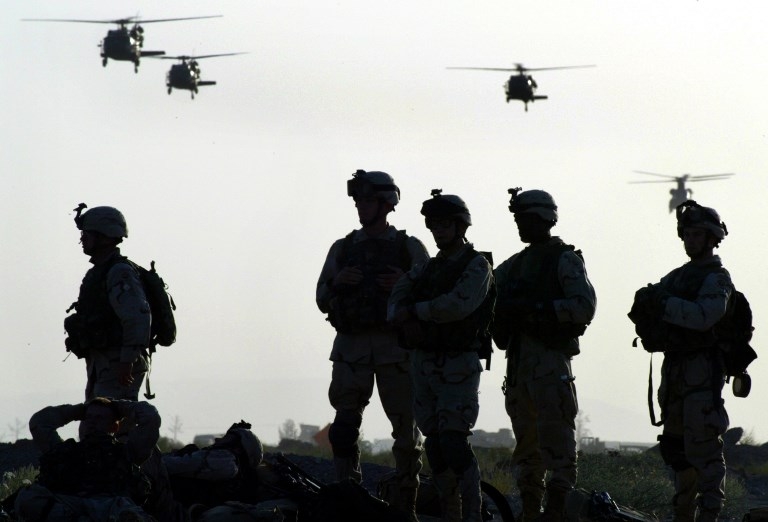
The International Criminal Court appears to be poised to open a formal investigation into war crimes allegedly committed by American forces and CIA officers in Afghanistan, despite the threat of US sanctions.
A pre-trial chamber at The Hague-based ICC is currently considering a request from the court’s prosecutor, Fatou Bensouda, that all three main parties to the war in Afghanistan – the Taliban, the Kabul government and the United States – be subject to a formal investigation.
Leading international lawyers spoken to by Middle East Eye agree that the legal tests that must be considered by the ICC have been met, and that a war crimes investigation now appears inevitable. Some suggest that a failure to investigate would be “scandalous”, and fatally undermine the stature of the court.
However, a formal investigation will set the ICC on a collision course with the United States government, which has made clear it intends to thwart the inquiry – an outcome that would also damage the court’s reputation.
As a consequence, observers say, a court that was established to “guarantee lasting respect for the enforcement of international justice” is now considering not only its responsibilities in law, but also how best to secure its own future.
'We will not sit quietly'
Last month US National Security Advisor John Bolton made clear that his government would not only refuse to co-operate, but would ban Bensouda and her ICC colleague from entering the country, seize their assets and even prosecute them in the US criminal courts.
In a speech, Bolton said an inquiry into war crimes in Afghanistan would be an “utterly unfounded, unjustifiable investigation”.
The US-led invasion of Afghanistan in October 2001 came just weeks after the 9/11 al-Qaeda attacks in New York and Washington and quickly led to the fall of the Taliban government in Kabul.
But US and allied forces remained bogged down for years in a violent conflict, and the Taliban and other militant groups continue to control large areas of the country.
"If the court comes after us, Israel, or other US allies we will not sit quietly,” Bolton said. “We will let the ICC die on its own. After all, for all intents and purposes, the ICC is already dead.”
The US has not ratified the Rome Statute, the piece of international law that established the ICC in 2002 in order to prosecute genocide, crimes against humanity, war crimes and crimes of state aggression.
Afghanistan has ratified the statute, however, meaning the court has jurisdiction over crimes committed as a consequence of the war in that country since 1 May 2003.
The ICC has told the US government that the pre-trial chamber is on the verge of making its decision, according to White House press secretary Sarah Sanders.
Lawyers spoken to by Middle East Eye believe it will be difficult for the ICC to refuse Bensouda’s request because of the wealth of evidence that significant numbers of war crimes have been committed in Afghanistan.
In the case of the US, this evidence includes the 2014 US Senate Intelligence Committee report, which drew upon the CIA’s own records to document human rights abuses that the agency committed in a global network of secret prisons; reports by the International Committee of the Red Cross; and findings by the European Court of Human Rights.
The US government may seek UN Security Council permission to delay any investigation, however. Even if an inquiry is launched, the lack of US co-operation will seriously hinder its progress, leading some international law experts to doubt that any American defendants will ever find themselves in the dock at The Hague.
The UN Security Council can defer a formal investigation if nine members agree, as long as none of the five permanent members – the US, Russia, the UK, France and China – veto such a move.
A number of the detainees held at these sites were then consigned to the US detention facility at Guantanamo Bay in Cuba.
Bensouda has said that crimes were inflicted on a relatively small number of people detained by the US military in Afghanistan.
If a formal investigation is launched, the ICC is expected to investigate officers who served within the military command structure in country. In relation to the CIA, however, she has expressed an interest in "those who developed, authorised, or bore oversight responsibility" for the agency's interrogation methods, meaning that senior officials at the agency - or their political masters - could find themselves under investigation.
'Very low threshold'
The Rome Statute says that the ICC “shall authorise an investigation” if there is a “reasonable basis” to believe that crimes within its jurisdiction have been committed. During proceedings that led to the investigation and prosecution of former Ivory Coast president Laurent Gbagbo, the court ruled that the term “reasonable basis” should be seen as a low bar to cross.
“There’s a very low threshold,” Katherine Gallagher, senior attorney at the Center for Constitutional Rights in New York, told MEE. “She’s not asking for an indictment. She’s simply asking to investigate. And there’s a tremendous amount of information in the public domain.”
Mark Ellis, executive director of the International Bar Association, said: “I think that the legal condition will be met: I think there will be a decision to permit her to proceed.”
'It is a matter of the most serious concern that nothing has happened before now, and that fact has tended to undermine the reputation of the institution in the eyes of many'
- Philippe Sands, Professor of Law, University College London
Chantal Meloni, legal advisor to the international crimes and accountability programme at the European Center for Constitutional and Human Rights said: “I think at this point it would be seen as a scandal to not authorise this investigation: it would be really shocking in a way.”
However, Philippe Sands, professor of law at University College London, who has appeared as counsel before the ICC, warned that an investigation is not a foregone conclusion.
“It is a matter of the most serious concern that nothing has happened before now, and that fact has tended to undermine the reputation of the institution in the eyes of many,” he told MEE.
But with the court now in a vulnerable position, caught between the need to be seen to be acting, on the one hand, and the desire not to undermine the support of an important country, Sands believes political considerations will be inevitable.
'The path is not clear'
Cornell Law School professor Joe Margulies, who represents the Guantanamo inmate Abu Zubaydah, a Saudi national who was waterboarded 83 times according to the Senate report into the CIA torture programme, also questions whether an effective investigation will ever take place.
“The public comments that Bolton made are really just the tip of the iceberg of diplomatic efforts that are taking place behind the scenes to defer indefinitely an ICC investigation,” he said. “That which is said publicly is a window into what is going on.”
No Americans are likely to prosecuted in the foreseeable future, Margulies said. “Even if the path were clear, it would be years, and the path is not clear.”
International lawyers agree on one matter: the ICC now finds itself between a rock and a very hard place.Some African observers have accused the court of abandoning the pursuit of global justice in favour of the pursuit only of African leaders, and will see a failure to investigate the US as evidence of this, possibly triggering renewed calls for an African Union walkout.
Many African Union countries have expressed support for Sudanese President Omar al-Bashir, who has continued to travel widely in Africa and the Middle East despite being the subject of an ICC arrest warrant since 2009 over alleged atrocities committed by Sudanese government forces in Darfur.
Equally, the court’s credibility will be greatly weakened if it does launch a formal investigation, and the US manages to frustrate it or delay its commencement indefinitely.
“This is a crisis period right now,” said Ellis. “Not just for the court but for international justice.”
Gallagher added: “So much is at stake about the sort of world we will be living in. Do you stand with the rule of law or do you want the rule of the jungle? We are in a very dangerous moment.”
Last week Bolton announced that the US planned also to withdraw from the international treaty that allows states to settle disputes at the International Court of Justice, also based at the Hague.
The pre-trial chamber’s decision and the US response will be watched closely by Lithuania, Poland and Romania. Bensouda has already concluded that alleged crimes that were committed inside CIA prisons in those countries appear to have taken place within the context of the war in Afghanistan, and all three states are signatories to the ICC.
It will also be studied by Israel and the United Kingdom, each of whom have been subject to preliminary – but not formal – investigations over allegations of criminal conduct in Palestine and Iraq.
As neither Iraq nor the US has ratified the Rome Statute, the ICC has no jurisdiction over US forces' actions in that country.
At the Hague, meanwhile, staff note that if the pre-trial chamber does not agree to Bensouda’s request for a formal investigation that will encompass the Unites States, that will not be the end of the matter: she can always appeal.
New MEE newsletter: Jerusalem Dispatch
Sign up to get the latest insights and analysis on Israel-Palestine, alongside Turkey Unpacked and other MEE newsletters
Middle East Eye delivers independent and unrivalled coverage and analysis of the Middle East, North Africa and beyond. To learn more about republishing this content and the associated fees, please fill out this form. More about MEE can be found here.


